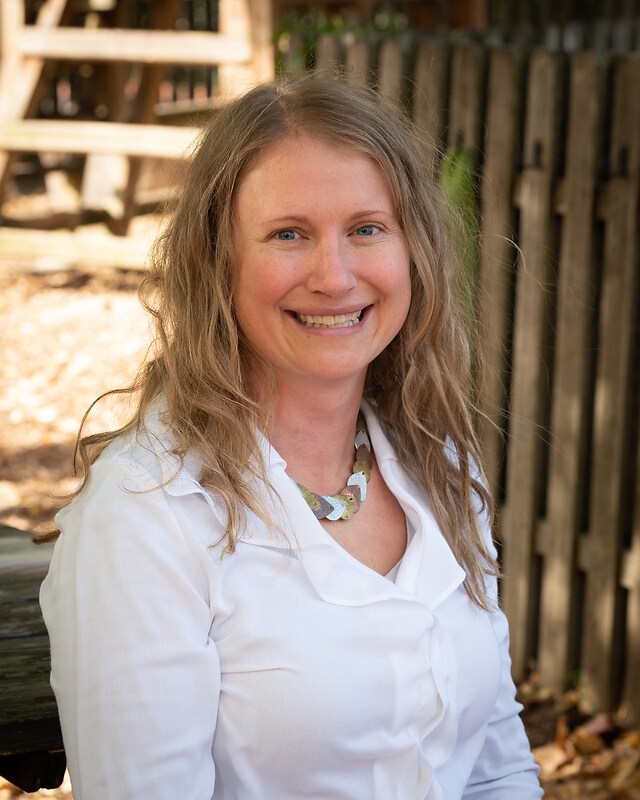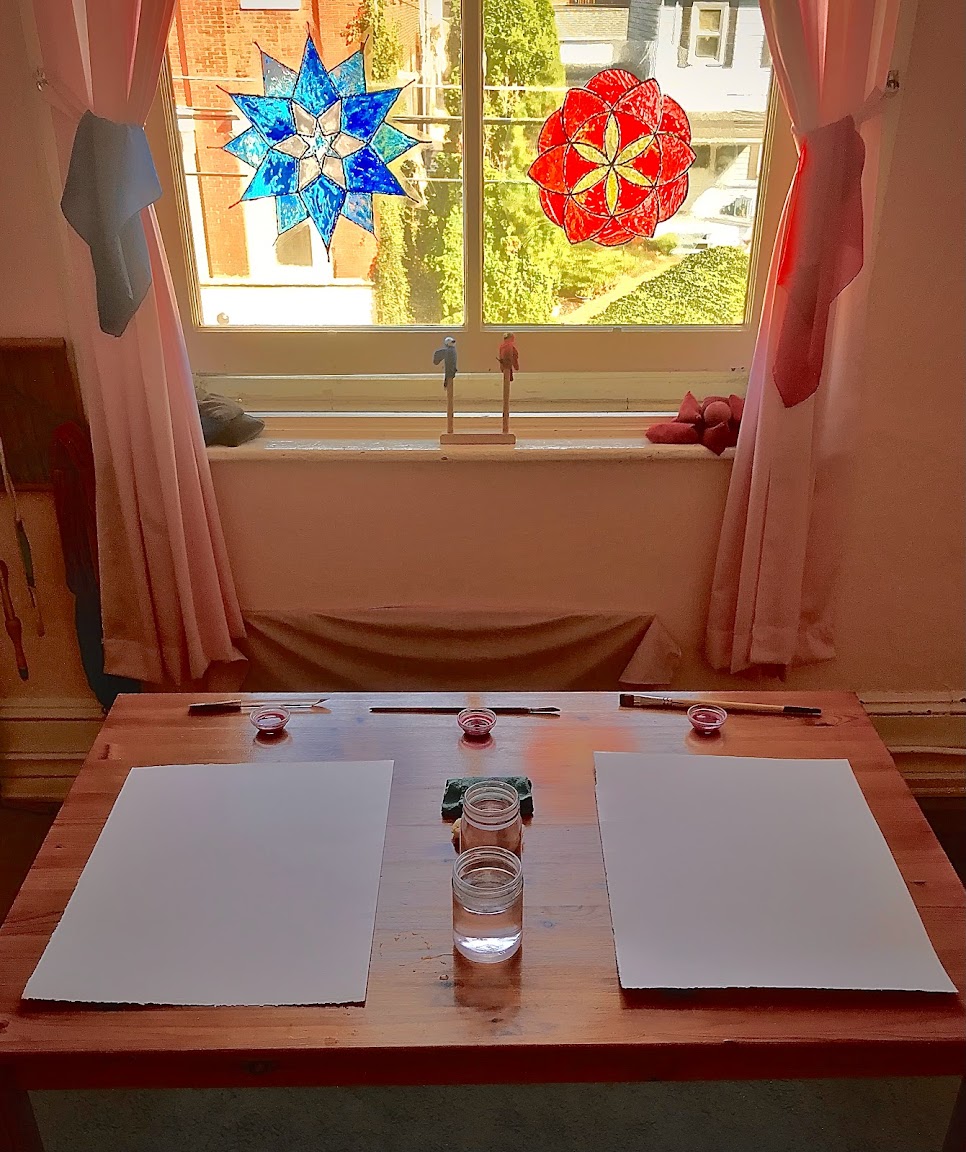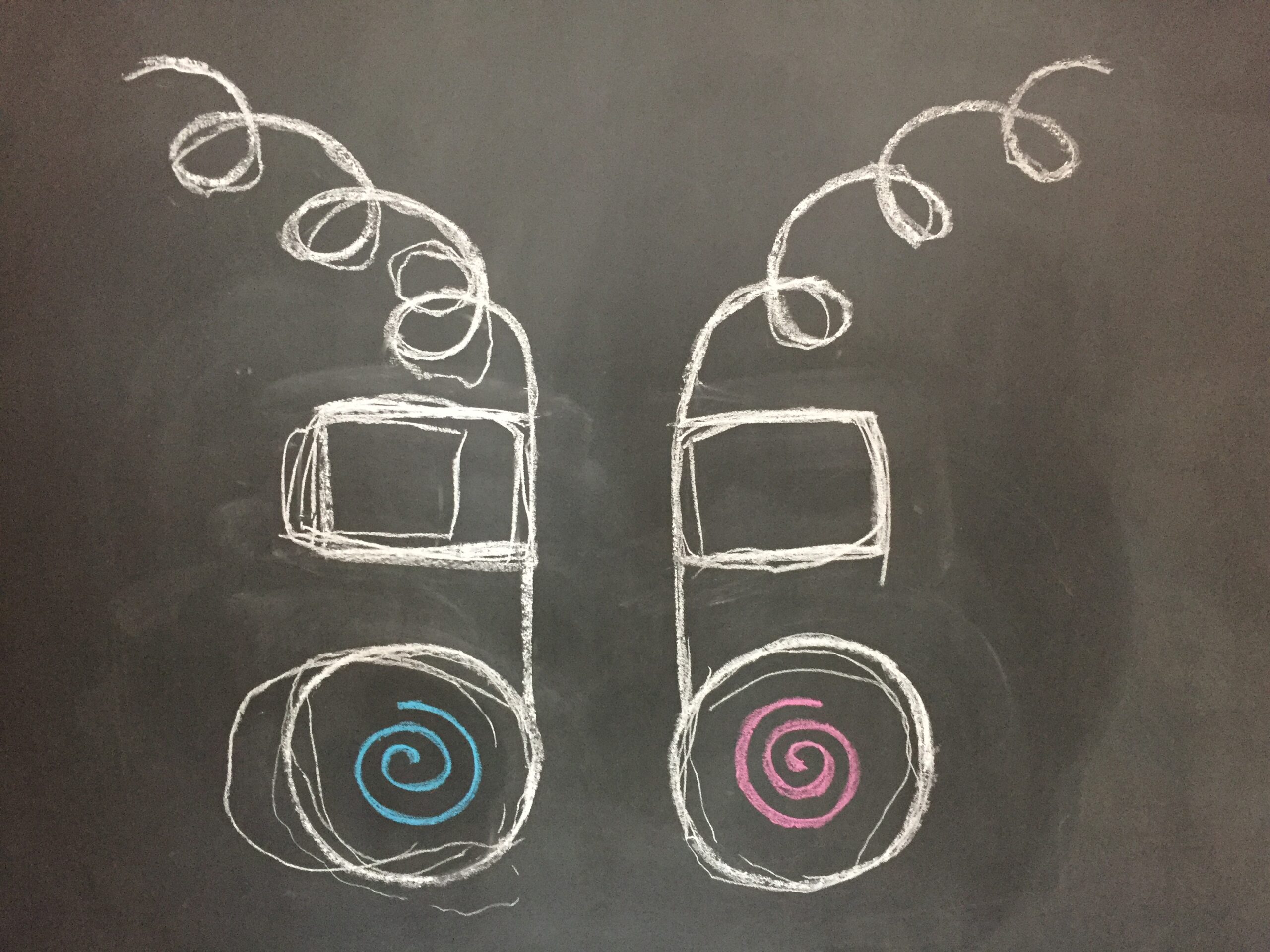 We asked alums, alum parents, current parents, former teachers, and more what makes SWS special. The overwhelming response was our community. The teachers and staff who welcome new families with open arms. The teachers who lovingly shape the lives and minds of our students. The parents who find friendship and camaraderie in their parenting journeys. The students who make lifelong friendships. The festivals and community events. Our campus tucked away along the Susquehanna River in beautiful Marietta. What makes our school by the river special is our community. In honor of this, we will be interviewing members of our incredible community. Our Education Support Teacher, Krista Bieniek, agreed to sit down with us to talk about her experience as a teacher at our school.
We asked alums, alum parents, current parents, former teachers, and more what makes SWS special. The overwhelming response was our community. The teachers and staff who welcome new families with open arms. The teachers who lovingly shape the lives and minds of our students. The parents who find friendship and camaraderie in their parenting journeys. The students who make lifelong friendships. The festivals and community events. Our campus tucked away along the Susquehanna River in beautiful Marietta. What makes our school by the river special is our community. In honor of this, we will be interviewing members of our incredible community. Our Education Support Teacher, Krista Bieniek, agreed to sit down with us to talk about her experience as a teacher at our school.
How long have you been a part of the SWS community?
I had to go back and count. 2016 is the year that I apprenticed with Ruth [former Education Support teacher], which was part of my Extra Lesson training. So that makes it 7 or 8 years. I started to learn more about this tradition of support that we have in Waldorf education. It’s quite different from what support might look like in another setting. My background is in child development, so I’ve worked a lot with neurodiversity, different learning styles, different learning needs, and then, to find a methodology of support in Waldorf Education was an exciting moment for me.
Tell us about your work as an Education Support Teacher.
I’ll tell you more about Extra Lesson, which is my favorite part of my work. The Extra Lesson is a tradition that we have in Waldorf schools. It was started by Audrey McAllen, who was a remedial support teacher and student of anthroposophy studying [Rudolf] Steiner. She had remarkable insights about human nature and how that relates to child development. She developed wonderful movement, drawing, and painting exercises to help children find their way into their bodies more fully. In my mainstream education in child development I learned about typical development but not what to do when development isn’t typical. I learned about how it is when it’s perfect but it’s never perfect and that is what the extra lesson does. It addresses any underlying developmental movement, sensory, and motor integration challenges.
In practice this looks like lots of movement when I’m working with a student. We’re jumping rope, we’re throwing, we’re catching, we’re rolling, we’re crawling, we’re balancing. All sorts of movement that explores the space around us and our bodies. Walking backward. Which is quite challenging for the small child. Standing on one foot with your eyes closed. Which is also quite challenging for some children but this work opens up more layers of neurological development. All this while practicing within the Waldorf traditions which always prompts teachers to hold this wonderfully open space to ask “Who, truly, is this child? ”And “What is it that they have to show me?” That’s always in the backdrop of the Extra Lesson: these movements, drawings and painting exercises, and asking myself where the children are on their path in relation to these developmental milestones. And how can little nudges of support help them find their way?
Our goal is to support children to grow into fully free human beings. And what that means from my perspective as a support teacher is that one can take in sensory information, including academics, and not be unduly hindered. There’s still so much space for diversity and all of the individuality in this. But, as much as we can, we want to have underlying foundational development pieces in place. That is the goal. The first-grade assessment is a really good example of this. It’s a huge moment in development when we say that we’re not going to introduce any higher-level learning until we know that the child can meet certain developmental milestones. One is left-right brain integration. We know that students do better academically if that stage of development is fully complete.

What led you to Waldorf Education?
Learning about the first-grade readiness assessment was my first moment of “Wow, what is happening here? What is it that they’re doing?” Because of, as I shared already, all of the work I had done in child development. This is the answer to “What do we then do? How do we help support whole human beings?”
Also learning about Child Study. That is something really unique to what we do [in Waldorf education]. Taking a moment to have the whole faculty lovingly, as unbiased as possible, observe another human being. I mean that blows my mind. Who else does that? It’s not “What are they doing wrong?” or “Why are they not able to pay attention?” We ask ourselves: “Who are these children before us?” “What are the unique gifts they are bringing into the world?” “What do we, as teachers, need to learn from them?” That is astounding.
There’s Care Group as well. Which is another unique part of many Waldorf Schools. Care Group at SWS is a group of teachers who voluntarily meet each week as a committee to holistically hold the child from this open perspective that I’ve been describing. Taking time to observe and to offer recommendations to teachers and offer student support where needed and recommendations for outside support where needed. The amount of time and energy that is spent on each child, I have not found that level of care and dedication anywhere else.
What sets SWS and Waldorf education apart?
I think what first comes to mind is breathing. That is the core of my work. From a very practical sense, to ask the question, “Is this child able to breathe in, to take things in? And are they able to relax and to breathe out?” And so many people, children, and adults, cannot. They are in this sympathetic, flight, or fight mode of stress. We first make sure that you are well and can take in information, to take in learning. That is one thing that Waldorf education does beautifully. It’s at the heart of everything. To hold that as the first question. “Are you happy? Are you whole? Are you well? Are you breathing?” To see then, after receiving an education here, how alums can go out into the world and fully meet it with all its present challenges. They have so many resources and faculties at their disposal. They are what inspire my work too.

How has working in Waldorf education impacted you as a person?
I’m so lucky to be here. I have found the way that we work at SWS to be tremendously impactful. There is so much space given for self-development. The whole “life-long learner” motto is also fully held by teachers and we are supported on our own paths in so many ways. We study together, there’s professional development. Even how we hold our relationships with each other, conflict resolution, all of these things. I have found that tremendously impactful to work in a community where there is so much striving and room to always learn and grow as an individual.
My study and practice of Extra Lesson has also made a deep impression on me personally. I had very mild dyslexia as a child and young adult. I don’t want to say it’s completely gone because I want to be really fair that obviously, everyone is different and will be impacted in different ways, but Extra Lesson has helped me to a tremendous degree. I never struggled with behavior or academics in school but I never had a full comfortability in my body. I never realized that I was working extra hard with spatial orientation, which translates into one’s processing of language and numbers. I had always a brief moment of pause, hesitation and ultimately lack of confidence and ease until I was able to learn and work more fully with developmental movement processes. This experience helps inform my work a great deal because it helps me understand, to a degree, the experiences and challenges many children are having at present.
What’s your favorite thing to do when you’re not at SWS?
I’m biking if I’m not here. If I’m not doing that, I’m probably digging in my garden. Planting all sorts of things. If I’m not doing that, I’m probably reading, doing yoga, studying, and relaxing. All those good things. Camping, hiking. There are all sorts of fun things that I’m so looking forward to doing this summer.
What’s your favorite thing about the SWS community?
The festivals. I find the rhythmic nature of them supportive. Just the same thing every year. Knowing that it’s coming. Predictably is so supportive for anxious children and good for adults too. At the same time it’s also the ability to create anew in community together each year. It’s always different. It’s magic for me when all sorts of people get together each year to decide, “What are we going to bake together? What are we going to craft together?”
